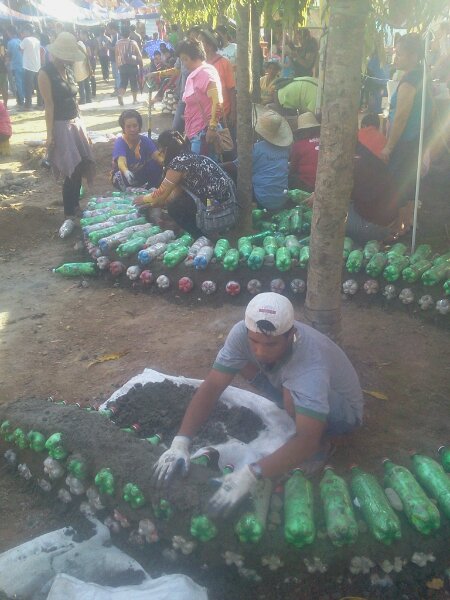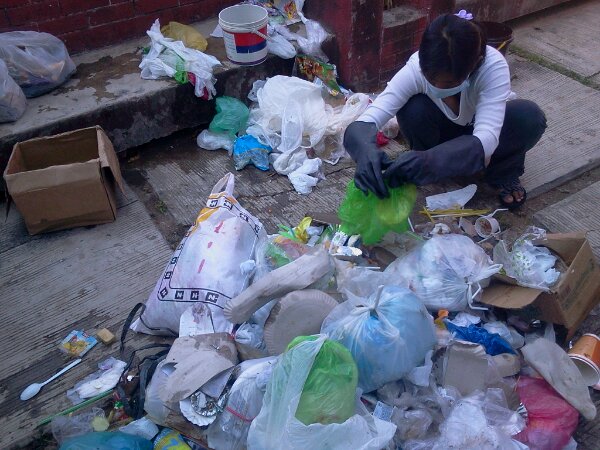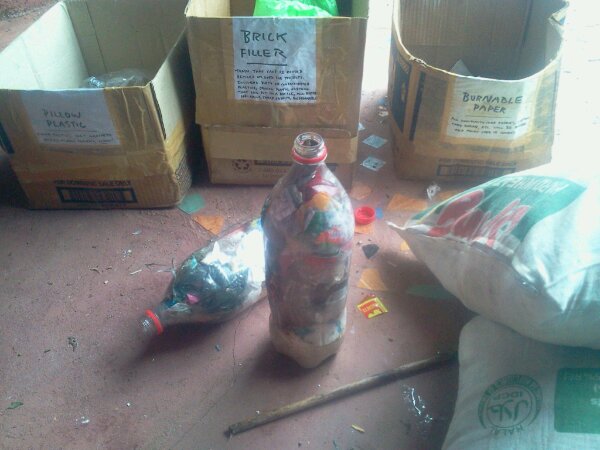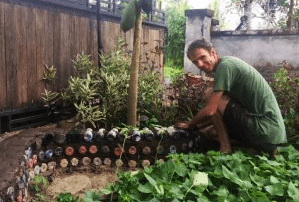I noticed something strange in the way people speak in the indegenuous Igorot villages here where I live. When the people speak in English they call wrappers and plastics that are on the ground “dirts”. This is strange– I figured it must be obviously a translation from their local dialect. Stranger, in the larger towns and cities where Filipino and Spanish have more influence they refer to trash as “basura” (i.e. Garbage).
After some investigation I discovered a fascinating fundamental conceptual difference that is intact in the villages, but eroded in the cities. In Kankanue, dirty is “narowgeet”. Something that is a cause of dirtiness is a “rowgeet”. In the indegenuous language there is simply no word for our concept of “trash”– something that is useless, ugly and no longer belongs.
In fact, the only real waste deposit place was the pig pen. Kitchen and human waste were put here to be transformed by the pogs. This was thus also the source of the rich and valuable fertilizer that they then used for their fields. There simply was no ‘trash’ (useless wastes) in these communities. “Recycling” was so obvious and built into everyday life.
Most significantly, fundamentally there wasn’t even the concept of “useless-wastes” in the community. Everything had its place in the circle of life.
Our world is created by how we see it and the concepts and values that we hold. What happens when we hold the concept of an object being useless? What happens when we have the concept of trash in our culture?
I’ve been thinking about this. Essentially we are damning the object with our decree of it being trash, useless, junk, garbage. Of course, nothing has changed in the object. The object is made from molecules just like everything else. It is still part of our planet and even the circle of life– despite how much more inconcrous its lifecycle might now be to surrounding ecologies. All that has really changed is our label for it.
Yet, with our trash decree we are setting the object on a poisonous path. If we see a cellphane as “trash” then we throw it away and it gets dumped, burned, flushed into a river, and it turns to poison. If we see it as something valuable then it gets put in a special place (segregated) then transformed, recycled, rebirthed, into a new useful form. Heck, we can even use the word “reincarnated”. in its next life, the object will either help create hell on earth, or heaven.
We are creating our world with our values and concepts. Its amazing really, but it all comes down to how we see it. If we saw a celephane bag as a priceless resource, then surely we wouldn’t cast it away so carelessly, and these bags wouldn’t be photodegrading in fields and rivers and oceans.
The Igorot communities here, and the first nation communities back in my country, lived for 10,000 years in a sustained harmony with the ecologies they were part of. Heck, some of the old villages can hardly be found any more because they have vanished back into the forests. Was it all because they didnt have the word “Garbage” in their vocabulary? That’s a little too simplistic of course, but it gets at something essential. When everything around you has value, then all the circles are complete and harmony is restored.
I am going to consciously avoid calling the bricks we are making by stuffing them with plastics “trash bottle bricks”. Heck, that wrapper on the grpund over there, it is not “trash” it is just some poor misplaced plastic!




